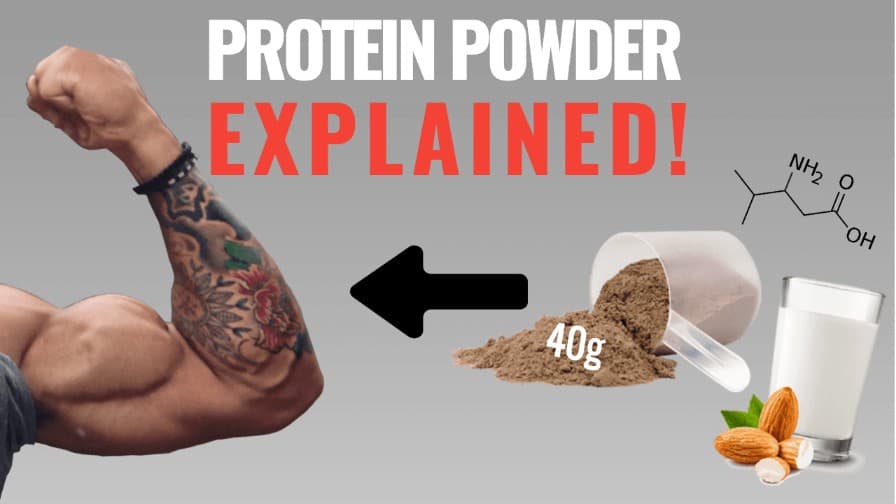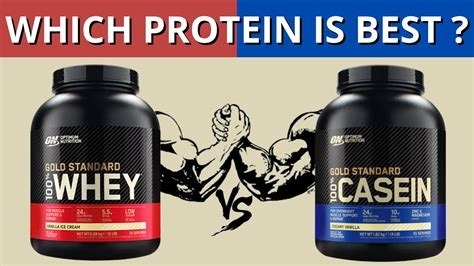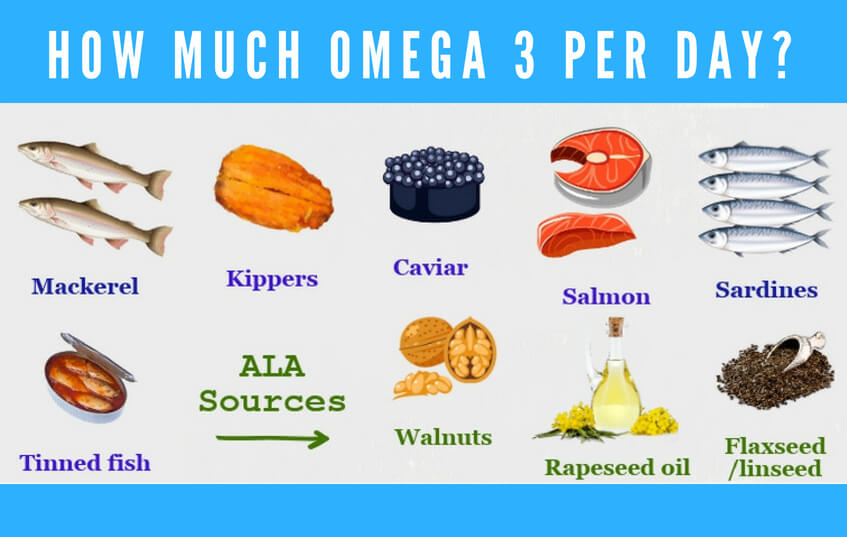In a world where the focus often lies on weight loss, there’s a significant population looking to gain weight for various reasons. Whether it’s to build muscle, recover from illness, or simply to achieve a healthier body weight, weight gain supplements play a crucial role in supporting these goals.
In the pursuit of achieving a healthy weight, many individuals turn to weight gain supplements to support their efforts. However, choosing the right supplements and understanding how to use them effectively is crucial for success. In this comprehensive guide, we will explore the best ways to gain weight, considerations for selecting weight gain supplements, their safety, and when to use them.
Best Ways to Gain Weight
Balanced Diet
A balanced diet comprising of all essential nutrients is fundamental for healthy weight gain. Focus on consuming a variety of nutrient-dense foods including lean proteins, healthy fats, complex carbohydrates, fruits, and vegetables.
Calorie Surplus
To gain weight, you must consume more calories than your body burns. Calculate your daily caloric needs and aim for a surplus by increasing your calorie intake through food and supplements.
Resistance Training
Incorporate resistance training exercises into your fitness routine to build muscle mass. Muscle weighs more than fat and contributes to a healthy weight gain.

Considerations for Weight Gain Supplements
Nutrient Composition
Choose weight gain supplements that provide a balance of macronutrients, including protein, carbohydrates, and fats. Look for products with high-quality ingredients to support muscle growth and overall health.
Additives and Fillers
Avoid supplements containing excessive additives, fillers, or artificial ingredients. Opt for products with minimal additives to reduce the risk of adverse effects and ensure optimal absorption of nutrients.
Allergens and Sensitivities
Check the ingredient list for common allergens such as gluten, dairy, and soy, especially if you have known sensitivities. Select supplements that are free from allergens to prevent digestive discomfort and allergic reactions.
Are Weight Gain Supplements Safe?
FDA Approval
Many weight gain supplements are not regulated by the FDA, so it’s essential to choose reputable brands that adhere to strict quality control standards. Look for products that have undergone third-party testing for purity and potency.
Potential Side Effects
While weight gain supplements are generally safe when used as directed, some individuals may experience side effects such as digestive issues, bloating, or allergic reactions. Start with a small dose and monitor your body’s response to minimize any adverse effects.
Long-Term Use
Avoid relying solely on weight gain supplements for an extended period. Instead, focus on achieving a balanced diet and incorporating whole foods into your meals to promote sustainable weight gain and overall health.
When to Use Weight Gain Supplements
Underweight or Malnourished
Weight gain supplements can be beneficial for individuals who are underweight or malnourished and struggle to meet their calorie needs through food alone. Supplementing with protein shakes or weight gainer powders can help increase caloric intake and support healthy weight gain.
Intense Training Regimen
Athletes and individuals with high activity levels may require additional calories and nutrients to support muscle recovery and growth. Incorporating weight gain supplements post-workout can aid in replenishing glycogen stores and promoting muscle protein synthesis.
Medical Conditions
Certain medical conditions or illnesses may interfere with appetite and nutrient absorption, leading to unintentional weight loss. In such cases, weight gain supplements prescribed by a healthcare professional can help meet nutritional needs and prevent further decline in health.
RELATED ARTICLE: Beef Organ Supplements: Unveiling the Nutritional Powerhouse
The Best Weight Gain Supplements
Vitamins
Vitamin D:
Supports immune function, bone health, and muscle strength. Available in capsules, tablets, and liquid forms.
Availability Forms:
Vitamin D supplements are available in various forms including capsules, tablets, and liquid formulations.
Pros:
- Supports immune function: Vitamin D plays a crucial role in maintaining a healthy immune system, helping the body fight off infections and diseases.
- Bone health: It aids in the absorption of calcium and phosphorus, promoting strong and healthy bones.
- Muscle strength: Vitamin D is essential for muscle function and may improve muscle strength and performance.
Cons:
- Risk of toxicity: Excessive intake of vitamin D supplements can lead to toxicity, causing symptoms such as nausea, vomiting, and weakness.
- Limited dietary sources: Vitamin D is primarily obtained through sunlight exposure, and dietary sources are limited, making supplementation necessary for many individuals.
- Absorption issues: Some people may have difficulty absorbing vitamin D effectively, especially those with certain medical conditions or digestive disorders.
How to Use:
- Follow the recommended dosage: Consult with a healthcare professional to determine the appropriate dosage of vitamin D based on your individual needs and health status.
- Take with food: Vitamin D supplements are fat-soluble, so taking them with a meal containing fats can enhance absorption.
- Regular testing: Periodically monitor your vitamin D levels through blood tests to ensure you are within the optimal range.

Vitamin B Complex:
Essential for energy metabolism and nutrient absorption. Found in tablets, capsules, and fortified foods.
Availability Forms:
Vitamin B complex supplements are commonly available in tablet or capsule forms. They may also be found in fortified foods and beverages.
Pros:
- Energy metabolism: B vitamins play a vital role in converting food into energy, supporting overall metabolic function and vitality.
- Nutrient absorption: They help the body absorb essential nutrients such as carbohydrates, proteins, and fats more efficiently.
- Nervous system health: B vitamins are crucial for maintaining a healthy nervous system and promoting cognitive function.
Cons:
- Potential interactions: High doses of certain B vitamins, such as B6 and B12, may interact with medications or cause adverse effects in some individuals.
- Water-soluble: B vitamins are water-soluble, meaning excess amounts are excreted through urine, requiring regular intake to maintain optimal levels.
- Individual variability: The need for B vitamins varies among individuals based on factors such as age, diet, and lifestyle, making personalized supplementation recommendations essential.
How to Use:
- Choose a quality supplement: Select a reputable brand of vitamin B complex that provides a balanced blend of B vitamins in bioavailable forms.
- Time of day: Take vitamin B complex supplements with breakfast or a meal to maximize absorption and minimize gastrointestinal discomfort.
- Consider additional sources: Incorporate foods rich in B vitamins, such as whole grains, leafy greens, eggs, and lean meats, into your diet to complement supplementation.

Vitamin E:
Acts as an antioxidant, protecting cells from damage. Available in soft gel capsules and liquid form.
Availability Forms:
Vitamin E supplements are commonly available in soft gel, capsule, or liquid forms. They may also be found in topical creams and lotions for skin health.
Pros:
- Antioxidant properties: Vitamin E acts as a powerful antioxidant, protecting cells from damage caused by free radicals and oxidative stress.
- Skin health: It may promote skin elasticity, hydration, and wound healing when applied topically or consumed orally.
- Heart health: Some research suggests that vitamin E may help support cardiovascular health by reducing inflammation and improving blood flow.
Cons:
- High doses risk: Taking high doses of vitamin E supplements may increase the risk of bleeding and interfere with blood clotting, especially in individuals taking blood-thinning medications.
- Uncertain benefits: The efficacy of vitamin E supplements in preventing chronic diseases such as cancer and heart disease remains controversial, with mixed results from clinical studies.
- Potential interactions: Vitamin E supplements may interact with certain medications, including blood thinners, chemotherapy drugs, and statins, affecting their effectiveness or safety.
How to Use:
- Check for contraindications: Consult with a healthcare professional before taking vitamin E supplements, especially if you have underlying health conditions or are taking medications that may interact with them.
- Consider topical application: If using vitamin E for skin health, choose a high-quality topical formulation and apply it directly to the skin as directed.
- Balance intake: Aim to obtain vitamin E from a balanced diet rich in nuts, seeds, vegetable oils, and leafy greens, in addition to supplementation if needed.

Protein
Whey Protein:
Easily digestible and rich in essential amino acids. Comes in powder form for convenient mixing into shakes and smoothies.
Availability Forms:
Whey protein supplements are widely available in powder form, typically sold in tubs or packets. They come in various flavors and formulations, including whey protein concentrate, isolate, and hydrolysate.
Pros:
- Rapid absorption: Whey protein is quickly absorbed by the body, making it an ideal post-workout supplement for promoting muscle recovery and growth.
- Complete amino acid profile: It contains all essential amino acids, including branched-chain amino acids (BCAAs), which are crucial for muscle protein synthesis and repair.
- Versatility: Whey protein powder can be easily mixed into shakes, smoothies, or recipes to increase protein intake and support muscle-building goals.
Cons:
- Dairy allergens: Whey protein is derived from milk, so individuals with lactose intolerance or dairy allergies may experience digestive discomfort or allergic reactions.
- Cost: High-quality whey protein supplements can be relatively expensive compared to other protein sources, especially if purchasing specialized formulations or brands.
- Potential additives: Some whey protein products may contain added sugars, artificial flavors, or fillers, so it’s essential to choose a reputable brand with transparent labeling.
How to Use:
- Choose the right type: Select whey protein concentrate for general use or whey protein isolate for individuals with lactose intolerance or seeking higher protein purity.
- Timing: Consume whey protein within 30 minutes to an hour after workouts to maximize muscle protein synthesis and recovery.
- Adjust dosage: Determine your protein needs based on your body weight, activity level, and fitness goals, and adjust the serving size accordingly.

Casein Protein:
Provides a slow-release protein source ideal for overnight muscle recovery. Available in powder form and protein bars.
Availability Forms:
Casein protein supplements are commonly available in powder form, similar to whey protein, and may also be found in protein bars or ready-to-drink shakes.
Pros:
- Slow-release protein: Casein forms a gel-like substance in the stomach, resulting in slower digestion and a sustained release of amino acids into the bloodstream, making it ideal for overnight muscle recovery.
- Muscle preservation: Consuming casein protein before bed can help prevent muscle breakdown during fasting periods, such as overnight sleep.
- Satiation: Casein protein has been shown to promote feelings of fullness and satiety, which may aid in appetite control and weight management.
Cons:
- Slower absorption: While the slow digestion of casein is beneficial for prolonged muscle protein synthesis, it may not be as effective immediately post-workout compared to whey protein.
- Dairy allergens: Similar to whey protein, casein is derived from milk and may cause digestive issues or allergic reactions in individuals with dairy sensitivities.
- Limited availability: Casein protein supplements may be less readily available or come in fewer flavor options compared to whey protein products.
How to Use:
- Nighttime consumption: Consume casein protein before bed to provide a steady supply of amino acids to muscles throughout the night.
- Combine with whey: For optimal results, consider combining casein protein with whey protein post-workout to capitalize on both fast and slow-digesting proteins.
- Experiment with timing: Some individuals may benefit from consuming casein protein during the day as a snack or meal replacement to support muscle recovery and satiety.
Soy Protein:
Suitable for vegetarians and vegans, soy protein offers a complete protein source. Available in powder form and fortified foods.
Availability Forms:
Soy protein supplements are available in powder form, typically derived from soybeans and processed into concentrates, isolates, or textured vegetable protein (TVP).
Pros:
- Plant-based source: Soy protein is derived from soybeans, making it suitable for vegetarians, vegans, and individuals with dairy or egg allergies.
- Complete protein: Soy protein contains all essential amino acids, making it comparable to animal-based proteins in terms of quality and muscle-building potential.
- Heart health benefits: Soy protein has been associated with lower cholesterol levels and reduced risk of cardiovascular disease, thanks to its high content of polyunsaturated fats and bioactive compounds.
Cons:
- Phytoestrogens: Some people may be concerned about the presence of phytoestrogens in soy protein, although research suggests that moderate consumption is unlikely to have adverse effects on hormone levels or health.
- Allergen potential: While soy protein is allergen-friendly for many individuals, some people may still have sensitivities or allergies to soy products, so it’s essential to check for potential reactions.
- Flavor and texture: Soy protein powders may have a distinct taste or texture that some individuals find less palatable compared to other protein sources, requiring experimentation with different brands or flavors.

How to Use:
- Diversify sources: Incorporate a variety of plant-based proteins into your diet, including soy protein, to ensure you’re meeting your nutritional needs and enjoying a balanced diet.
- Check for quality: Choose organic or non-GMO soy protein supplements to minimize exposure to pesticides and ensure product purity.
- Experiment with recipes: Use soy protein powder in smoothies, baked goods, or savory dishes to add a boost of protein to your meals and snacks.
Other Supplements
Creatine:
Enhances muscle strength and performance during high-intensity workouts. Typically found in powder form for mixing with water or juice.
Availability Forms:
Creatine supplements are commonly found in powder form, with creatine monohydrate being a popular option. Other formulations like creatine hydrochloride or buffered creatine may also be available.
Pros:
- Increased muscle strength: Creatine supplementation has been shown to enhance strength and power output during high-intensity activities such as weightlifting and sprinting.
- Muscle Volumization: Creatine draws water into muscle cells, resulting in increased cell volume and a fuller, more muscular appearance, known as muscle volumization.
- Enhanced recovery: Creatine has been shown to decrease muscle damage and inflammation post-exercise. This results in faster recovery and enhanced performance in subsequent workouts.

Cons:
- Water retention: Some individuals may experience temporary water retention or bloating when initially starting creatine supplementation, although this typically resolves once the loading phase is complete.
- Digestive discomfort: High doses of creatine or certain formulations may cause gastrointestinal issues such as stomach cramps, diarrhea, or nausea in sensitive individuals.
- Non-responders: While most individuals experience benefits from creatine supplementation, some people may not respond as effectively due to genetic factors or individual variability in muscle creatine uptake.
How to Use:
- Loading phase: Begin with a loading phase of 20 grams per day (divided into four doses) for five to seven days to saturate muscle stores of creatine quickly.
- Maintenance phase: After the loading phase, reduce the dosage to 3-5 grams per day to maintain elevated creatine levels in the muscles.
- Timing: Take creatine supplements with carbohydrates or a protein-rich meal to enhance absorption and maximize muscle uptake.
Weight Gainer Powders:
Combines protein, carbohydrates, and fats to support muscle growth and weight gain. Available in various flavors for customizable shakes.
Availability Forms:
Weight gainer powders are typically available in powder form, usually consisting of a blend of protein, carbohydrates, and fats, along with vitamins and minerals. They come in various flavors and formulations to suit individual preferences.
Pros:
- Convenient calorie boost: Weight gainer powders offer a convenient solution for boosting calorie intake. This helps individuals with high energy needs meet their daily requirements more easily.
- Muscle building support: The protein and carbohydrates in weight gainer powders aid in muscle growth and recovery. This is particularly effective when consumed after a workout.
- Customizable nutrition: Many weight gainer powders offer customizable serving sizes and nutrient ratios. This allows users to adjust their intake according to their goals and preferences.
Cons:
- High sugar content: Some weight gainer powders may have high sugar content, potentially causing excessive calorie intake. This may not be suitable for individuals with diabetes or insulin resistance.
- Cost per serving: Weight gainer powders can be pricey per serving, especially premium brands. This is in comparison to whole food sources of protein and carbohydrates.
- Digestive issues: Consuming large quantities of weight gainer powders in one sitting can cause gastrointestinal discomfort, bloating, or diarrhea. This is particularly true for individuals with sensitive stomachs.
How to Use:
- Gradual introduction: Start with a smaller serving size of weight gainer powder and gradually increase it over time. As your body adjusts to the higher calorie intake.
- Meal replacement: Use weight gainer powders as a convenient meal replacement option when whole food options are unavailable or impractical.
- Combine with whole foods: Supplement weight gainer powders with whole food sources of protein, carbohydrates, and fats to ensure a balanced and nutrient-rich diet.
Omega-3 Fatty Acids:
Supports cardiovascular health and reduces inflammation. Found in fish oil capsules and in liquid form.
Availability Forms:
Omega-3 fatty acid supplements are often sold as fish oil capsules. These capsules contain concentrated eicosapentaenoic acid (EPA) and docosahexaenoic acid (DHA).

Pros:
- Heart health benefits: Omega-3 fatty acids have demonstrated benefits such as reducing inflammation and lowering triglyceride levels. They also improve cardiovascular health, lowering the risk of heart disease.
- Brain function support: DHA, in particular, is essential for brain development and function. Omega-3 supplementation may help support cognitive function and reduce the risk of age-related cognitive decline.
- Anti-inflammatory properties: Omega-3 fatty acids have potent anti-inflammatory effects. These may benefit individuals with inflammatory conditions such as arthritis, asthma, or inflammatory bowel disease.
Cons:
- Fishy aftertaste: Some individuals may encounter a fishy aftertaste or burp with fish oil supplements. This is more common if the capsules lack enteric coating or if the oil quality is lower.
- Potential contaminants: Fish oil supplements may contain trace amounts of environmental contaminants, such as mercury, PCBs, or dioxins. Although, reputable brands typically undergo rigorous testing to ensure purity and safety.
- Dosage variability: Optimal omega-3 dosage varies, so personalized recommendations are crucial for maximum benefits.
How to Use:
- Choose high-quality supplements: Select fish oil supplements from reputable brands. These brands use purification methods like molecular distillation to ensure quality and remove contaminants.
- Spread out dosage: Divide omega-3 intake into smaller doses for better absorption and fewer side effects.
- Monitor effects: Monitor mood, energy levels, and inflammation markers when taking omega-3 supplements. Adjust dosage or formulation as needed based on your body’s response.
Conclusion
Achieving weight gain requires a combination of proper nutrition, exercise, and, in some cases, supplementation. By following a balanced diet, incorporating weight gain supplements strategically, and prioritizing overall health, you can achieve your weight gain goals safely and effectively. Consult with a healthcare professional or registered dietitian to personalize your approach and ensure optimal results.
